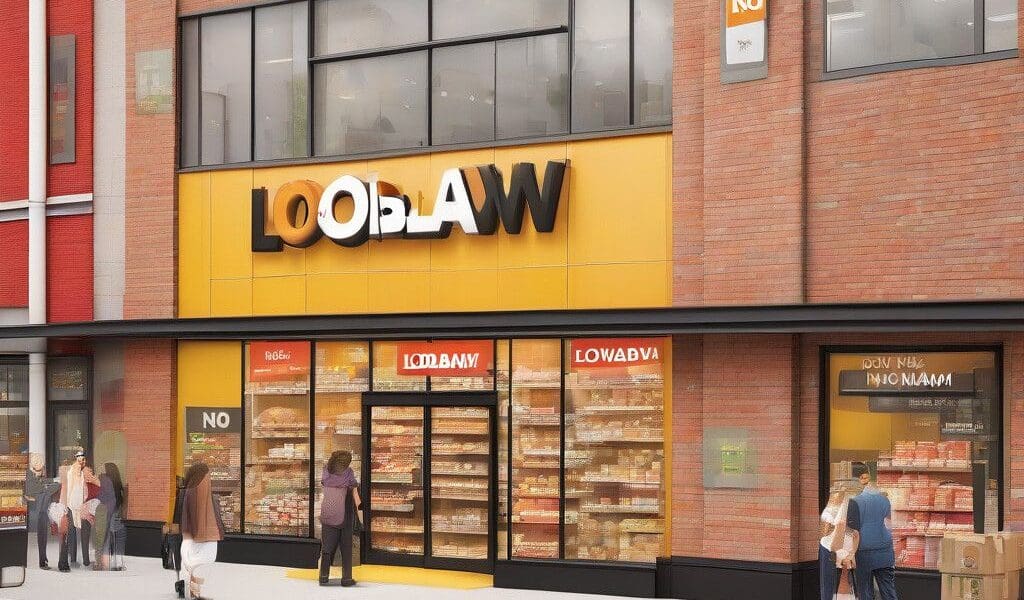In a strategic move to address rising food inflation and meet consumer demand for affordable shopping options, Loblaw Companies is testing a new retail concept: the ‘No Name’ store. This innovative approach aims to provide customers in three selected Ontario markets with a streamlined shopping experience, featuring a limited assortment of products at significantly reduced prices.
The ‘No Name’ store is positioned as a value-based retailer. Per Bank, the president and CEO of Loblaw, emphasizes the company’s commitment to offering essential grocery and household items at the lowest possible price. This initiative is particularly prescient given that global food inflation continues to impact family budgets across the country. According to Bank, the goal is clear: to pass on savings directly to customers while adapting to their changing shopping habits.
Key Features of the ‘No Name’ Store Concept
1. Targeted Product Selection: Each ‘No Name’ store will carry approximately 1,300 carefully selected products. These include popular pantry staples and essential household goods, ensuring that customers have access to the items they purchase most frequently. This targeted assortment is designed to minimize waste and streamline inventory management. Notably, it’s reported that products in these stores will be priced up to 20% less than comparable items available at the four major discount grocers in the surrounding area.
2. Lower Operating Costs: The business model behind the ‘No Name’ store underscores lower operating costs as a central strategy for price reduction. By implementing shorter operating hours, reducing marketing expenditures, eliminating refrigeration requirements, and decreasing delivery frequency, Loblaw aims to maximize efficiency. This approach not only benefits consumers looking for cheaper options but also positions the company to remain competitive in a challenging economic environment.
3. Simplified Shopping Experience: The ‘No Name’ store promises a straightforward shopping trip, free from the usual complexities of larger grocery outlets. By focusing on a limited product range and creating a no-frills environment, the store caters to customers who prioritize simplicity along with cost savings.
A Test-and-Learn Project
Melanie Singh, president of Loblaw’s Hard Discount Division, terms this the “test and learn project.” Such pilot ventures are essential for organizations seeking to mitigate risk while exploring innovative solutions. Retail has been drastically reshaped over recent years, compelling brands to adapt rapidly. This approach allows Loblaw to gauge customer reception and operational efficiency before potentially expanding the model across a broader landscape.
In conducting pilot projects, retailers not only gather data on customer preferences but also make informed decisions about stock levels, pricing strategies, and marketing campaigns. With consumer priorities shifting toward affordability, integrating such feedback into a broader company strategy is key.
The Competitive Landscape
In the context of the ongoing competitive grocery sector, retailers must constantly innovate to attract price-sensitive shoppers. Other discount retailers are also ramping up efforts to enhance value propositions. For example, chains like Walmart and Costco have honed their offerings to include an array of private label products, allowing them to compete directly on price while maintaining quality.
Simultaneously, the rise in e-commerce and online grocery shopping cannot be overlooked. Retailers are now tasked with integrating in-store experiences with digital platforms, creating seamless shopping opportunities for consumers. As Loblaw rolls out its ‘No Name’ stores, it’s critical for them to also consider an omnichannel approach, possibly integrating low-cost delivery options or online ordering to cater to the evolving preferences of tech-savvy shoppers.
Conclusion
Loblaw’s introduction of the ‘No Name’ store concept reflects a focused effort to meet consumers where they are—amidst a growing demand for affordability without sacrificing quality. By exploring innovative solutions like reduced operating costs and a concentrated product selection, Loblaw aims to reinforce its position as a leader in the Canadian grocery market.
As this pilot program unfolds, the insights gathered will likely shape future retail strategies, offering valuable lessons in efficiency and customer engagement. The landscape of grocery shopping is changing, and retailers who can adapt quickly will not only survive but thrive in the current environment.










